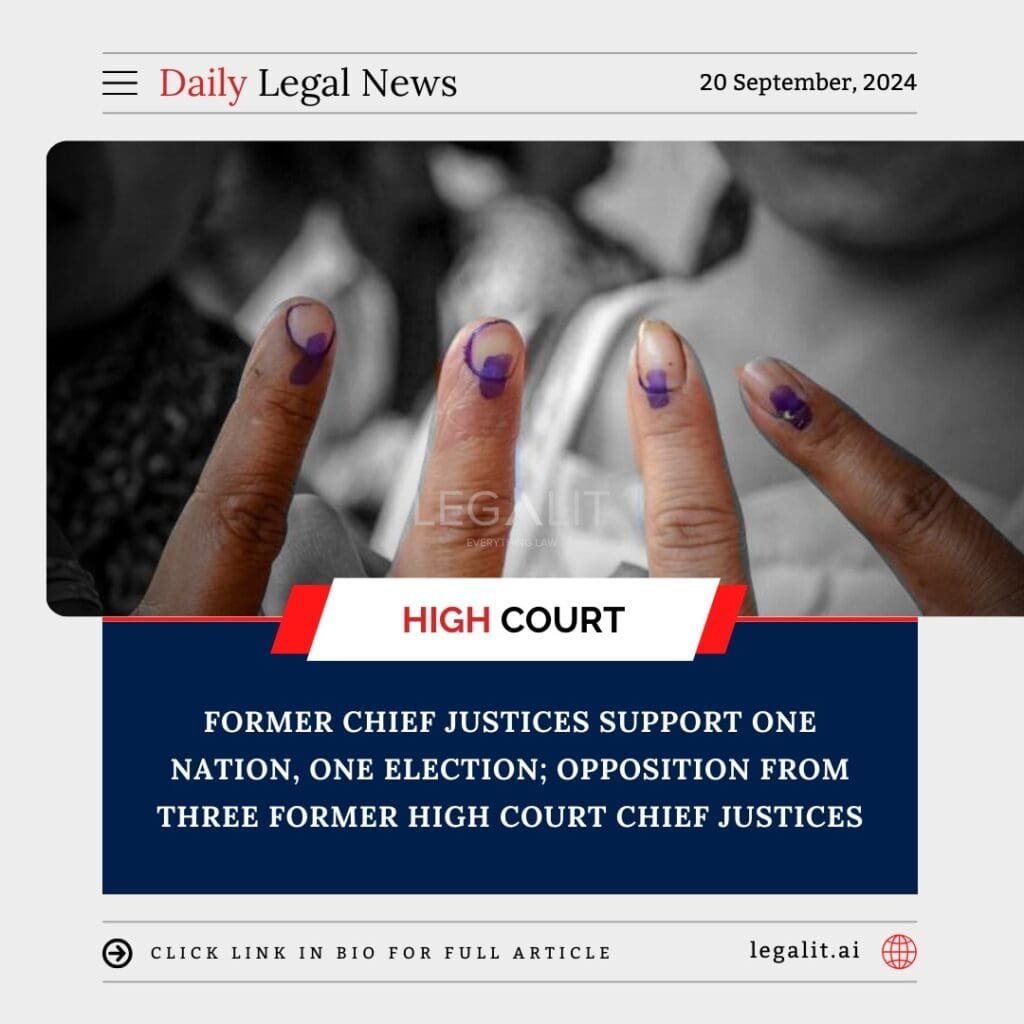
The proposal for One Nation, One Election, aimed at synchronizing elections for the Lok Sabha and state assemblies, has received backing from several former Chief Justices of India. However, the initiative has also faced significant pushback from three former Chief Justices of High Courts, highlighting a divide in opinions regarding its feasibility and implications.
Support from Former Chief Justices of India
Prominent former Chief Justices have expressed their support for the One Nation, One Election initiative, arguing that it could lead to substantial benefits for the electoral process in India. They believe that conducting simultaneous elections would:
- Reduce Election Expenditure: By consolidating elections, the overall financial burden on the government and political parties could be significantly lowered.
- Enhance Administrative Efficiency: Simultaneous elections could streamline the electoral process, reducing the frequency of polls and minimizing the disruptions that multiple elections cause to governance and public life.
- Focus on Governance: With elections held less frequently, governments could concentrate more on governance and development rather than being in a perpetual election mode.
- Increase Voter Engagement: A unified electoral schedule may encourage higher voter turnout and engagement, as the electorate would participate in a single voting exercise rather than multiple elections spread across different times.
Opposition from Former High Court Chief Justices
Contrastingly, three former Chief Justices of High Courts have raised objections to the proposal, emphasizing several concerns:
- Federalism and Autonomy: Critics argue that the proposal undermines the federal structure of the country, as state assemblies have their own timelines for elections based on their specific political contexts. Synchronizing elections could diminish the autonomy of state governments.
- Voter Confusion: There are concerns that holding simultaneous elections could lead to confusion among voters, especially in states where local issues dominate the electoral discourse. This could result in voters prioritizing national over local concerns.
- Complexity in Implementation: The logistical challenges of implementing such a system are significant. The transition to simultaneous elections would require extensive coordination among various electoral bodies, which may not be feasible in the short term.
- Impact on Local Issues: Opponents argue that frequent elections allow local issues to be highlighted and addressed. A consolidated election could overshadow regional matters, potentially sidelining important local voices.
Broader Implications
The debate surrounding One Nation, One Election highlights the complexities of India’s democratic framework, where federalism and local governance play crucial roles. The mixed reactions from former judicial leaders reflect the need for careful consideration of both the potential benefits and drawbacks of such a significant electoral reform.
- Policy Discussion: The divergent opinions indicate a need for a comprehensive policy discussion that includes stakeholders from various sectors, including political parties, civil society, and legal experts.
- Public Sentiment: As the discourse continues, public opinion will play a vital role in shaping the future of the proposal. Engaging with citizens and understanding their perspectives on electoral reforms is essential.
- Constitutional Implications: The proposal raises questions about constitutional provisions related to elections, and any significant changes would likely require careful legal examination and potential amendments.
Conclusion
The support for and opposition to the One Nation, One Election initiative reflects a broader dialogue on the future of electoral democracy in India. As the debate unfolds, it will be crucial for lawmakers and stakeholders to navigate the challenges and opportunities that come with such a transformative proposal, ensuring that the interests of all citizens are adequately represented and considered.